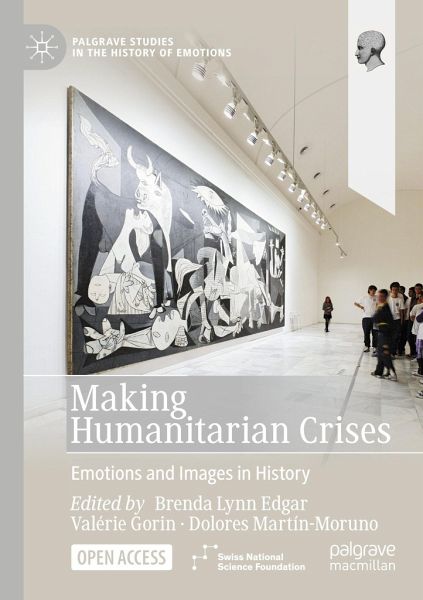
Making Humanitarian Crises
Emotions and Images in History
Versandkostenfrei!
Versandfertig in 1-2 Wochen
32,99 €
inkl. MwSt.

PAYBACK Punkte
16 °P sammeln!
This open access book explores the emotional agency of images in the construction of 'humanitarian crises' from the nineteenth century to the present. Using the prism of the histories of emotions and the senses, the chapters examine the pivotal role images have in shaping cultural, social and political reactions to the suffering of others and to the establishment of the international networks of solidarity. Questioning certain emotions assumed to underlie humanitarianism such as sympathy, empathy and compassion, they demonstrate how the experience of such emotions has shifted over time. Unders...
This open access book explores the emotional agency of images in the construction of 'humanitarian crises' from the nineteenth century to the present. Using the prism of the histories of emotions and the senses, the chapters examine the pivotal role images have in shaping cultural, social and political reactions to the suffering of others and to the establishment of the international networks of solidarity. Questioning certain emotions assumed to underlie humanitarianism such as sympathy, empathy and compassion, they demonstrate how the experience of such emotions has shifted over time. Understanding images as emotional objects, contributors from a wide horizon of disciplines explore how their production, circulation and reception has been crucial to the perception of humanitarian crises in a long-term historical perspective.














